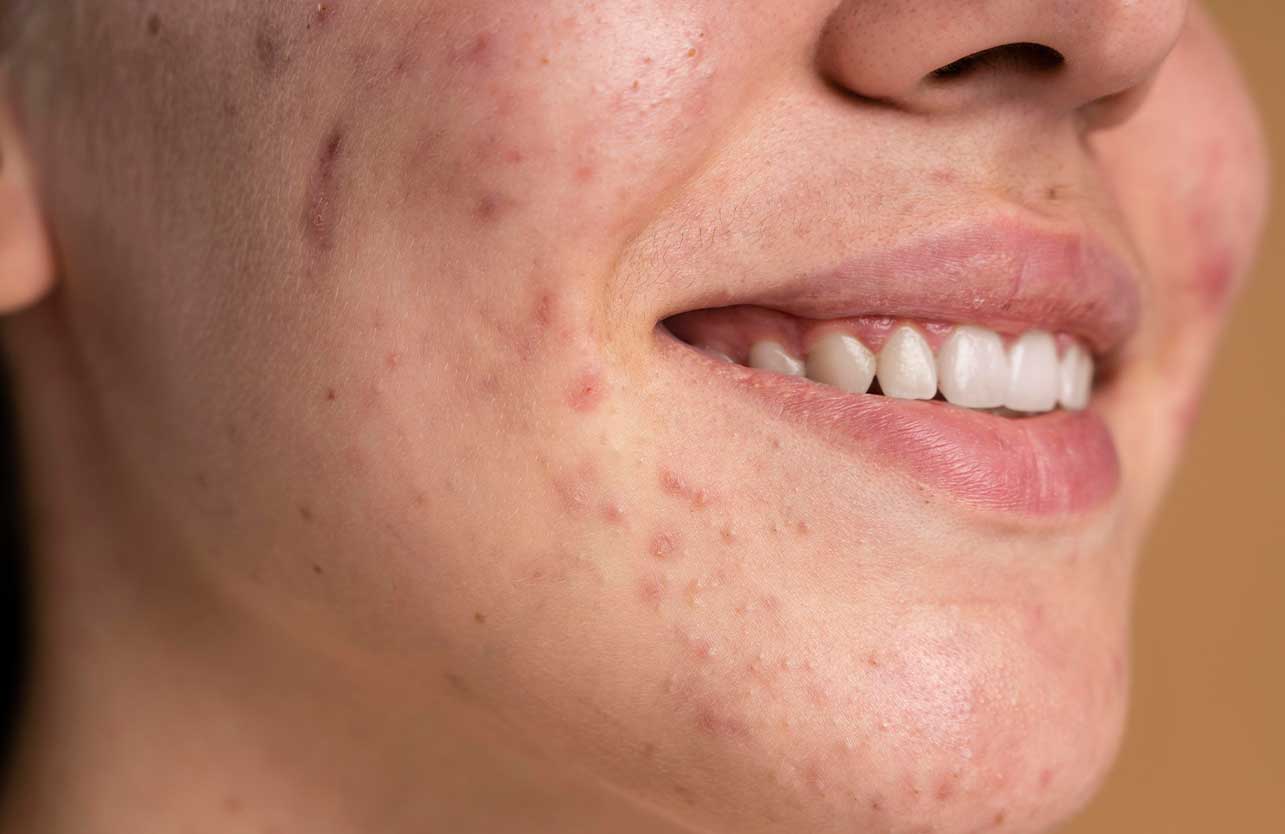What is Acne, What Causes It, and How Is It Treated?
What is Acne?
Acne is a common skin condition characterized by inflammation of the sebaceous glands and hair follicles. It frequently occurs during puberty due to hormonal changes but can also persist into adulthood as a chronic issue. Acne presents as blackheads, whiteheads, red pimples, and deeper inflammations.
What Causes Acne?
Several factors contribute to acne development:
- Hormones: Changes in hormone levels during puberty, menstrual cycles, and pregnancy can increase oil production in the skin.
- Genetic Predisposition: Individuals with a family history of acne are more likely to experience it.
- Bacteria on the Skin: The proliferation of the Propionibacterium acnes bacteria can exacerbate acne by infecting follicles.
- Improper Skincare: Use of pore-clogging cosmetics and improper cleansing methods can trigger acne.
- Stress: Stress can disrupt hormonal balances, increasing acne occurrence.
- Diet: Excessive consumption of high glycemic index foods and dairy products may trigger acne in some individuals.
How is Acne Treated?
Acne treatment should be personalized and adapted to individual skin needs:
1. Topical Treatments
- Retinoids: Unclog pores and prevent new acne formation.
- Antibiotic Creams: Reduce bacterial populations on the skin.
- Benzoyl Peroxide: Has antibacterial and anti-inflammatory properties.
2. Systemic Treatments
- Oral Antibiotics: Used for moderate to severe acne to reduce inflammation and bacteria.
- Hormonal Treatments: Particularly in women, hormonal treatments can effectively manage acne.
- Isotretinoin (Roaccutane): A powerful medication offering a lasting solution for severe acne.
3. Cosmetic Dermatology Methods
- Chemical Peels: Renew the skin's upper layers and cleanse pores.
- Laser Treatments: Laser therapy reduces inflammation, treats acne, and diminishes the appearance of acne scars.
- Microdermabrasion: Removes dead skin cells, reducing acne formation.
Effective Home Care Tips for Acne
- Use non-comedogenic products that do not clog pores.
- Cleanse your skin gently twice daily.
- Apply antibacterial and anti-inflammatory products regularly to acne-prone areas.
- Engage in stress-reduction activities.
- Maintain a healthy and balanced diet.
Common Mistakes in Acne Treatment
- Popping or squeezing pimples can lead to permanent scarring.
- Excessive cleansing and using harsh products can irritate the skin, worsening acne.
- Using inappropriate cosmetics can clog pores and exacerbate acne.
Recommendations from Dr. Ezgi Özkur for Acne Treatment
Dermatologist Assoc. Prof. Dr. Ezgi Özkur emphasizes patience and regular dermatological check-ups in acne treatment. Personalized treatment plans developed with a dermatologist can achieve lasting and successful results.

